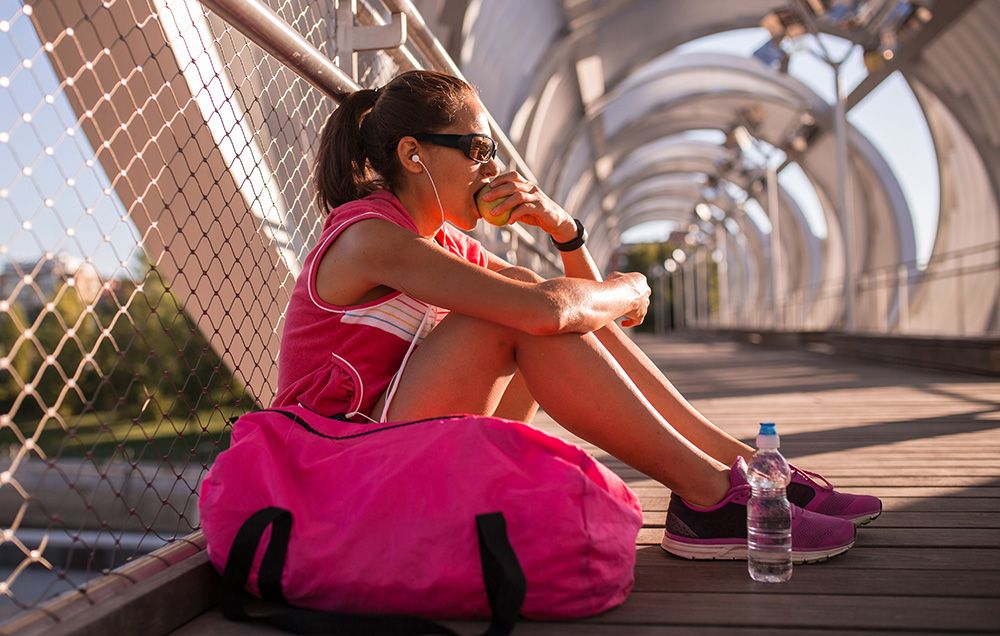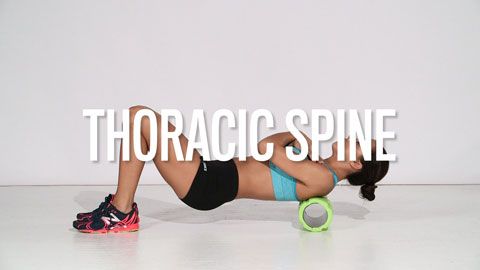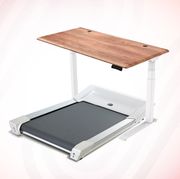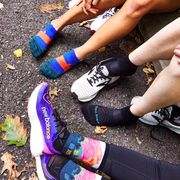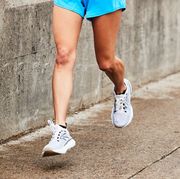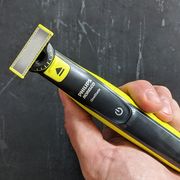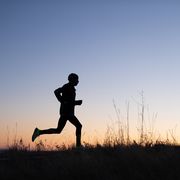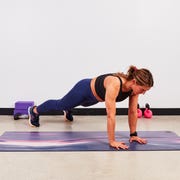Seasoned runners know the drill—cross the finish line, jump for joy (if able), grab the medal, thank the volunteers, and find some of that free food in the tent. But the biggest key for your recovery could be that bag you checked before the race.
Pack it right and this postrace recovery bag can offer more than just a set of warm clothes; it can help your weary muscles refresh so your body breaks down less throughout the day. Make sure these essentials are ready to go on race day so you can walk easily—rather than hobble—to your car or the postrace party.
The Right Fuel
For optimal recovery, time is of the essence. Within an hour of finishing, grab a mix of protein and carbs to fend off post-exercise soreness and fatigue. The longer you wait, the longer the amount of time it takes for muscles to repair themselves.
Carbohydrates restock the glycogen burned during the race, and protein does the rest by thwarting the microscopic damage experienced in the muscle tissue with every passing mile. Aim for approximately 65 to 90 grams of carbohydrate to restock your glycogen stores and follow with 15 to 30 grams of protein to stop muscle breakdown. (This is for a 130 to 180-pound runner—male or female. Use less or more depending on your body weight.)
You shouldn’t depend on the postrace food spread as you’re likely to find a smattering of carb options like bagels, sports drinks, bananas. But high-quality protein options are typically limited. Consider packing your snacks in the form of a ready-to-drink shake or have a scoop of protein powder mix (that you’ve had during training and like). Some packable snacks to get you started for your carbo and protein refueling include:
- 1 whole wheat English muffin topped with 2 Tbsp nut butter + jelly (13 g protein, 61 g carb)
- trail mix made of 1/4 cup each: mixed nuts, roasted soybeans, dried fruit (24 g protein, 54 g carb)
- 2.7oz. Krave beef Jerky and a small apple (23 g protein, 43 g carb)
Pro triathlete and foodie Rebeccah Wassner has another example. She grabs a homemade nutrient-rich bone broth, or a BruBroth. “I find that it helps me eliminate that run-down feeling [after] a long flight or car drive,” she says. Something like that adds a boost of hydration, sodium, and hint of protein. Even if you want to refuel with something like a shake, pack a sandwich—such as one whole wheat pita with 1/4 cup shelf-stable hummus, and 3 oz. chilled chicken (31 g protein, 48 g carb)—inside an insulated bag to hit the protein threshold needed to jumpstart your overall recovery.
Rehydrate ASAP
If your urine runs dark or you don’t need to go for hours after you cross the finish line, the odds are that dehydration is the problem. Optimally, look for urine color to return to the optimal lemonade-color, which signals proper hydration. (And check out these 7 Things the Color of Your Pee Says About Your Health.)
Address dehydration by drinking plenty of water with electrolytes after your race. Grab fluids along with sodium, chloride, potassium, and even a mix of magnesium and calcium. If the race doesn’t have what you need, keep electrolyte tabs and powders in your bag. If you simply can’t stomach another sip of sports drink, grab water along with a salty food such as pretzels, canned soup, or even finish-line-festival pizza. While beer does provide micronutrients and fluid, water should come first, and the libations should come later.
RELATED: 5 Hydration Mistakes You Are Probably Making
Roll It Out
Most of us have had that feeling the day after a hard race when unfurling yourself from bed feels awful and going down stairs seems unmanageable. But if you are smart enough to have a handy roller with you after the race, the repercussions may be less severe.
Foam rolling flushes out toxins, improves circulation, and has been clinically shown to attenuate muscle soreness while improving range of motion and reducing post-exercise soreness. There are a lot of great options to work out those sore muscles, but you can boost your recovery by grabbing one of the new (and seriously effective) vibrating foam rollers. Some research studies (though limited) have shown them to be as effective or more effective than traditional rollers. The Grid Vibe from Trigger Point ($99.99, amazon.com) is a smart option.
Compress and Stress Less
While some runners wear compression during the race itself, others swear by them for postrace recovery. These pieces of apparel are known to improve blood circulation, flushing out the waste that builds up over the miles. Pack a pair of full-length socks in your recovery bag and another in your luggage. And a tip for those traveling: Many runners find them to be most helpful in preventing pain and swelling if boarding a plane in the hours following the race.
